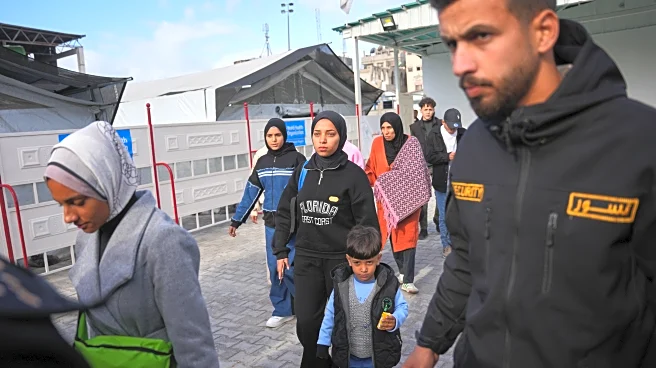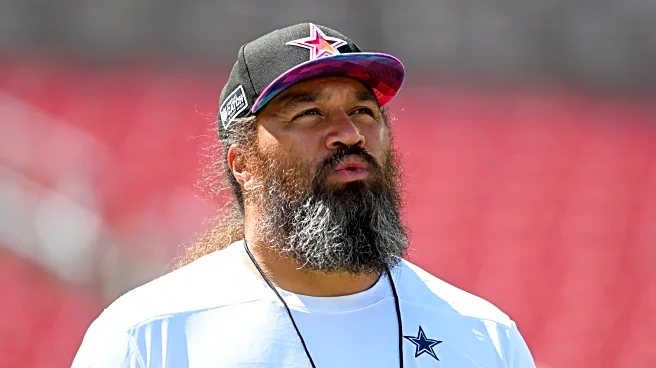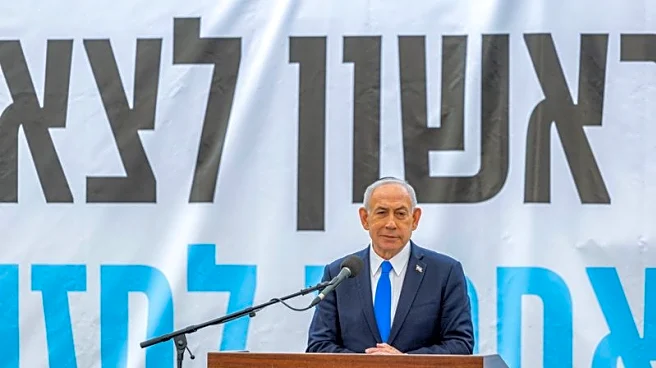What is the story about?
What's Happening?
Shlomit, a 48-year-old nurse from Rehelim, has joined the reserves of the IDF's 401st Armored Brigade, serving alongside her husband and two of her sons in Gaza. Her decision was driven by a desire to contribute to the ongoing conflict, despite never having served in the military before. Shlomit enlisted through a special track for women with relevant professional training, and now plays a vital role in the brigade's medical corps. Her family has been actively involved in the conflict, with her husband serving as a liaison officer and her sons as tank crew members. Shlomit operates in a medevac Humvee, providing life-saving treatments and evacuating wounded soldiers.
Why It's Important?
Shlomit's involvement highlights the personal sacrifices and commitments made by families during times of conflict. Her story underscores the broader societal impact of war, where individuals are compelled to step into roles they might not have anticipated. This development also reflects the increasing participation of women in military roles, challenging traditional gender norms and expanding the scope of contributions women can make in defense sectors. The dedication of Shlomit and her family exemplifies the spirit of resilience and duty, which can inspire others facing similar circumstances.
What's Next?
Shlomit will continue her dual role, splitting her time between her duties in the reserves and her work as a nurse at Meir Medical Center. Her ongoing service in Gaza, particularly in the medical corps, will be crucial as the conflict persists. The IDF's operations in Gaza are likely to continue, requiring sustained support from reserve forces like Shlomit. Her story may encourage other civilians with relevant skills to consider joining the reserves, potentially increasing the pool of available personnel for military operations.
Beyond the Headlines
Shlomit's story raises questions about the psychological and emotional toll of war on families, especially those with multiple members involved in active duty. It also highlights the ethical considerations of civilian involvement in military operations, particularly in conflict zones. The integration of women into combat roles may lead to long-term shifts in military policies and societal perceptions of gender roles in defense.


















